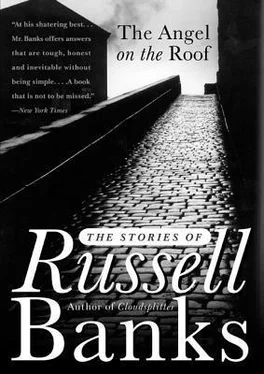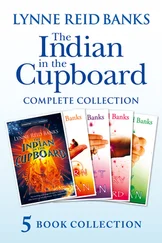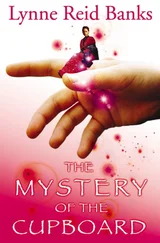“Nothing out there but ice, and it’s flat all the way across.”
“How’ll I get back?”
“There’s lights on here at the park. You just aim for them. You don’t need a light to see light. You need dark. Stop gabbing and start pushing,” he said.
The kid leaned against the bob-house, grunted, and the building started to move. It slid easily over the ice on its waxed runners, at times seeming to carry itself forward on its own, even though against the wind. As if he were leading a large, dumb animal, Merle steered the bob-house straight out from the shore for about a quarter mile, then abruptly turned to the right, and headed east, until he was a few hundred yards from the weirs, where the lake narrowed and where, Merle knew, there were in one place a gathering current, thirty to forty feet of water, and a weedy, fertile bottom. It was a good spot, and he spun the bob-house slowly over it until the side with the door faced away from the prevailing wind.
“Let it sit,” he said to the kid. “Its weight’ll burn the ice and keep it from moving.” He went inside and soon returned with a small bucksaw and his long chisel. “You cut the wood into stove lengths, and I’ll dig us in,” he said, handing the saw to the kid.
“This is really fucking incredible,” Bruce said.
Merle looked at him silently for a second, then went quickly to work chipping the ice around the runners and stamping the chips back with his feet, moving swiftly up one side and down the other, until the sills of the house were packed in ice. By then Bruce had cut two of the four poles into firewood. “Finish up, and I’ll get us a fire going,” Merle told him, and the kid went energetically back to work.
In a short time, a fire was crackling inside the round belly of the stove, the kerosene lantern was lit, and the bob-house was warmed sufficiently for Merle to pull off his mackinaw and gloves and hang them on pegs behind the bunk. Bruce laid in the wood carefully below the bunk, then looked up at Merle as if for approval, but Merle ignored him.
“Now,” the kid said, shaking off his blue parka and, following Merle’s example, placing it on a peg, “show me what you got there, those whachacallits from the fields.” He sat down next to Merle and rolled a joint. “Smoke?” he said, holding out the cigarette.
“No, thanks, I got whiskey.”
“You oughta smoke grass instead,” the kid said, lighting up.
“You oughta drink whiskey. ’Course, you got to be smarter to handle whiskey than you do that stuff.” He was silent and watched Bruce sucking on the joint.
The kid started to argue with the old man. Grass never did to you what whiskey surely did, made you depressed and angry, ruined your liver, destroyed your brain cells, and so on.
“What does grass do to you?” Merle asked.
“Gets you high, man.” He grinned.
Merle grunted and stood up. “If it can’t hurt you, I don’t see how it can get you high.” He opened the trapdoors in the floor, exposing the white ice below, and with his chisel went to work cutting holes. With the lip of the steel, he flaked ice neatly away, making a circle eight or nine inches across, then dug deeper, until suddenly the hole filled with water. Moving efficiently and quickly, he soon had a half dozen holes cut, their tops and bottoms carefully beveled so as not to cut the line, and with a small strainer he scooped the floating ice chips away, until there was only clear, pale blue water in the holes.
On a lapboard he proceeded to chop hunks of flesh off several hand-sized minnows he’d plucked from a bait pail. This done, he placed the chum into a tin cone with a line attached to the top through a lever that released the hinged bottom of the cone when the line was jerked. He let the cone slowly down the center hole, slightly larger than the others and, hand over hand, let out about thirty feet of line, until he felt the cone touch bottom. He jerked the line once, retrieved it, and brought the cone back into the bob-house, dripping and empty.
Bruce watched with obvious admiration as the old man moved about the confines of the bob-house, adjusting the draft of the stove, taking out, using, and wiping dry and putting back his tools and equipment, drawing his bottle of Canadian Club from under the bunk, loosening his boots, when suddenly the old man leaned down and blew out the lantern, and the bob-house went black.
“What? What’d you do that for?” Bruce’s voice was high and thin.
“Don’t need it now.” From the darkness came the sound of Merle unscrewing the cap of the whiskey bottle. Then silence.
“How long you plan to stay out here tonight?” The kid sounded a little frightened.
“Till morning,” came the answer. “Then for as long as the fishing’s any good and the ice holds.”
“Days and nights both?”
“Sure. I only have to come in when I run outa whiskey. There’s plenty wood along the banks, I’ll have to step out now and then for that, and, of course, you got to piss and shit once in a while. Otherwise…”
They sat in darkness and silence awhile longer, when finally the kid stood up and groped behind him for his coat. “I… I gotta go back in.”
“Suit yourself.”
He took a step toward the door, and Merle said to him, “Those goldenrod galls you was asking about?”
“Oh, yeah,” the kid said.
Merle struck a match, and suddenly his face was visible, red in the glow of the match as he sucked the flame into the barrel of his pipe, his bearded face lurching ominously in and out of the light when the flame brightened and dimmed. When he had his pipe lit, he snuffed out the match, and all the kid could see was the red glow of the smoldering tobacco. “Bait.”
“Bait?”
“Yep. Old Indian trick.”
The kid was silent for a few seconds. “Bait. You mean, that’s how you got me to push this thing way the hell out here tonight?”
“Old Indian trick.”
“Yeah,” Bruce said coldly. He drew open the door and stepped quickly out to the ice and wind, looked into the darkness for the lights of the trailerpark, found them way off and dimly in the west, and started the walk back.
No one brought Merle any Christmas gifts or invited him to any of the several small parties at the park. The reasons may have been complicated and may have had to do with the “loans” they all had received from him, but more likely the residents of the trailerpark, as usual, simply forgot about him. Once in a while, someone mentioned having seen him walk through the park on his way to town and return later carrying a bag of groceries and a state liquor store bag, but otherwise it was almost as if the old man had moved away, had gone west to Albany like Buddy Smith or south to Florida like Captain Knox’s mother and father or into town to the Hawthorne House like Claudel Bing.
The week before Christmas, there was a snowstorm that left a foot and a half of snow on the ground and on the lake, followed by a day and a night of high, cold winds that scraped the snow into shoulder-high drifts along the shore, and that further isolated Merle from the community. Now it was almost as if he had died, and when in the morning you happened to look out at the lake and saw way out there in the brilliant white plain a red cube with a string of woodsmoke unraveling from the stovepipe chimney on top, you studied it the way you would the distant gravestone of a stranger reddening in the light of the rising sun.
A week later, just after Christmas and before the turn of the year, Noni Hubner’s mother was reading the Manchester Union Leader at breakfast, when she started up excitedly, grabbed the paper off the table, and hurried back through the trailer to her daughter’s bedroom.
“Noni! Noni, wake up!” She shook the girl roughly by the shoulder.
Читать дальше












